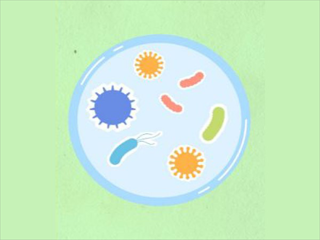A human body carries along with it trillions of microbes wherever it goes. Apart from just hitching to its host, many of these microbes perform essential chemical reactions which regulates many things in our body such as from digestion to our immune system and even our moods. The absorption of fats by bile acids is also one of the important set of reactions. Bile acids helps in absorption of fats while they pass through the small intestines. Microbes present at the end of small intestine convert acids into new forms which can be either beneficial or baneful. The locating of the bacterial genes which are involved in the bile acid conversion is being carried out in mechanistic studies in order to determine the effect of bile acid conversion on the human body .According to Jason Ridlon, Associate Professor in the Department of Animal Sciences at U of I and Correspondent Author of an article in Gut Microbe, if found beneficial then therapeutic strategies can be developed which can stimulate the production of the bile juices in the gastrointestinal tract. Enzymes which are produced by microbes can modify the orientation of three hydroxyl groups on bile acid molecules. Ridlon along with other scientists have identified the genes for two of these enzymes, but one still remains unknown. Nowadays, this study is of high importance looking at the current situation.
“From the literature published a few decades ago, we knew the species in which this function was reported. We have confirmed this in a strain of Clostridium paraputrificum that we have in our culture collection. This function is known to be catalyzed by certain enzymes known as reductases,” Ridlon adds. This is useful to researchers of the human microbiome as the field moves towards the attempt to link function and disease. We now know the exact DNA sequences that encode an enzyme that flips carbon-12 of bile acids.
Researchers haven't figured out whether changing the hydroxyl group on carbon-12 is a good or a bad thing. In the good category, the change may play a role in detoxifying harmful bile acids such as deoxycholic acid (DCA)and lithocholic acid (LCA), chemicals known to damage DNA and cause cancers of the colon, liver, and esophagus. But Ridlon points out that the "good versus bad" framing oversimplifies reality. While we tend to think DCA and LCA are wrong, 'the context is very important. Clostridium difficile, for example, appears to correlate with low DCA and LCA levels,which is why these bile acids appear to be protectors in preventing unwanted colonizers and ACL due to western lifestyle but are bad.



